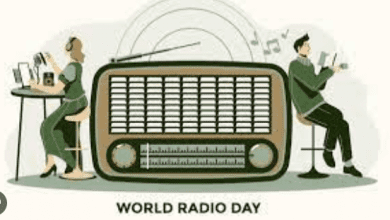Explore the rich history and contemporary significance of Heroes Day in Rwanda. Join us on a journey to commemorate the heroic past and present.
QUICK FACTS
- Date: February 1st every year
- Main Components: Laying of wreaths, dances, songs, poems, speeches, and other activities to honor the heroes and heroines of Rwanda
- Popularity: A national public holiday observed by all Rwandans and friends of Rwanda
- Pairings: Other public holidays such as Independence Day, Liberation Day, Genocide Memorial Day and Umuganura Day
- Variations: Different regions and sectors may have different ways of celebrating the day
Introduction
Heroes Day In Rwanda is a special day to commemorate the lives and patriotic efforts of those who have fought for the country and helped restore peace. The day is also a celebration of the Rwandan people’s resilience in the face of adversity and their commitment to uphold the values of dignity, sacrifice, collaboration and community service. Heroes Day In Rwanda is observed on February 1st every year, and it is one of the most important public holidays in the country. The day is marked by various events and activities that pay tribute to the heroes and heroines of Rwanda, both living and deceased, who have distinguished themselves by their heroism and exemplary acts. The day also serves as a source of inspiration for future generations of Rwandans to emulate their heroes and heroines and contribute to the development and well-being of their nation. In this article, we will explore the history, significance and celebrations of Heroes Day In Rwanda.
History of Heroes Day In Rwanda
Heroes Day In Rwanda has its origins in the liberation struggle that started in 1990, when the Rwandan Patriotic Front (RPF) launched a military campaign to overthrow the oppressive regime that had ruled the country since independence from Belgium in 1962. The RPF was led by Major General Fred Rwigyema, who is considered one of the ultimate heroes of Rwanda. He died on the second day of the invasion, but his legacy lives on as a symbol of courage and patriotism. The liberation struggle lasted for four years, and it was marked by fierce battles, massacres, human rights violations, and a genocide that claimed the lives of over 800,000 Tutsi people and moderate Hutu people in 1994. The genocide was triggered by the assassination of President Juvenal Habyarimana and President Cyprien Ntaryamira of Burundi, who were killed when their plane was shot down on April 6th, 1994. The genocide was stopped by the RPF forces, who captured Kigali on July 4th, 1994, and declared a new government led by Paul Kagame.
Related: Independence Day In Nauru 2023
Heroes Day In Rwanda was first celebrated in 1995, as a way of honoring the fallen heroes and heroines who sacrificed their lives for the liberation of their country. The date of February 1st was chosen because it was the day when Rwigyema was buried at his home village in Nyakabuye. Since then, Heroes Day In Rwanda has evolved to include other categories of heroes and heroines who have contributed to the country’s peace, unity, development and dignity. These include:
- Imanzi: The category of ultimate heroes whose achievements show sacrifice and example. This category includes soldiers who fell during the liberation struggle and soldiers who fought for the nation.
- Imena: The category of heroes known for their great sacrificial acts and examples. This category includes civilians who were killed during the genocide for refusing to betray their fellow citizens or for protecting them from harm. A notable heroine in this category is Agathe Uwilingiyimana, who was the prime minister at the time of the genocide. She was killed on April 7th, 1994, after giving a radio broadcast urging Rwandans to resist violence and hatred.
- Ingenzi: The category of living heroes known for their remarkable achievements and sacrifice for the nation. This category includes people who have excelled in various fields such as politics, education, health, sports, culture, arts, science, technology, business, etc.
Heroes Day In Rwanda is also related to other public holidays that celebrate different aspects of Rwanda’s history and culture. These include:
- Independence Day: July 1st every year. The day marks the anniversary of Rwanda’s independence from Belgium in 1962.
- Liberation Day: July 4th every year. The day marks the anniversary of Rwanda’s liberation from genocide by the RPF forces in 1994.
- Genocide Memorial Day: April 7th every year. The day marks the start of the 100-day commemoration period for the victims of the genocide against the Tutsi in 1994.
- Umuganura Day: August 5th every year. The day marks the celebration of the first harvest and the thanksgiving for the bounty of the land.
Significance of Heroes Day In Rwanda
Heroes Day In Rwanda is a very important and meaningful day for Rwandans and the world. The day has several significance and values, such as:
- It promotes patriotism, dignity, sacrifice, collaboration and community service among Rwandans. The day reminds Rwandans of their past struggles and achievements, and inspires them to love their country, respect their dignity, sacrifice for the common good, work together for a shared vision, and serve their communities with dedication and excellence.
- It contributes to the country’s sovereignty, liberation, development and wellbeing. The day celebrates the heroes and heroines who have fought for the country’s freedom and democracy, and who have contributed to its progress and prosperity. The day also encourages Rwandans to continue their efforts to build a peaceful, united, inclusive and prosperous nation.
- It honors the memory and legacy of the heroes and heroines of Rwanda. The day pays tribute to the people who have given their lives or made outstanding contributions to the country and its citizens. The day also preserves their stories and lessons for future generations to learn from and emulate.
Heroes Day In Rwanda is also a way of showing gratitude and appreciation to the heroes and heroines of Rwanda, both living and deceased. The day acknowledges their sacrifices and achievements, and expresses gratitude for their service and example. The day also offers support and solidarity to their families and friends, who have also endured pain and loss.
Related: Fred Korematsu Day In Florida 2023
Celebrations of Heroes Day In Rwanda
Heroes Day In Rwanda is celebrated with various events and activities that honor the heroes and heroines of Rwanda. The main event is a ceremony that takes place at the National Heroes Mausoleum in Kigali, where the remains of some of the heroes and heroines are buried. The ceremony is attended by the president, the first lady, government officials, military officers, diplomats, religious leaders, civil society representatives, family members of the heroes and heroines, and other guests. The ceremony includes:
- Laying of wreaths at the mausoleum by the president, the first lady, and other dignitaries
- Singing of the national anthem and other patriotic songs
- Reading of poems and speeches that praise the heroes and heroines
- Lighting of candles in memory of the fallen heroes and heroines
- Observing a minute of silence in respect of the heroes and heroines
The ceremony is broadcasted live on television and radio stations across the country. It is also followed by other activities such as:
- Soccer matches between different teams representing different regions or sectors
- Concerts featuring local artists who perform songs that celebrate heroism
- Exhibitions showcasing artworks or products that depict or honor heroism
- Workshops or seminars that discuss or teach about heroism
- In Eldoret, a town in western Kenya where many Rwandan refugees settled during the genocide, Heroes Day In Rwanda is celebrated with a march that passes through different sites where Rwandans were killed or rescued during the genocide. The march ends at a memorial site where prayers are said for the victims.
- In Mombasa, a coastal city in eastern Kenya where many Rwandan traders operate, Heroes Day In Rwanda is celebrated with a boat parade that sails along the Indian Ocean. The parade displays flags and banners that honor Rwandan heroes and heroines.
- In Kisumu, a city in western Kenya where many Rwandan students study, Heroes Day In Rwanda is celebrated with a cultural festival that showcases Rwandan dances, songs, cuisines, costumes, crafts, etc.
- In Nakuru, a town in central Kenya where many Rwandan farmers work, Heroes Day In Rwanda is celebrated with a harvest festival that shares the fruits of their labor with their neighbors.
- In Belgium, where Rwanda was colonized for decades, Heroes Day In Rwanda is celebrated with a solidarity rally that calls for justice and reparations for Rwandans who suffered under colonial rule.
- In Canada, where many Rwandans have immigrated or sought asylum, Heroes Day In Rwanda is celebrated with a fundraising event that
- In Canada, where many Rwandans have immigrated or sought asylum, Heroes Day In Rwanda is celebrated with a fundraising event that supports various projects and initiatives that benefit Rwandans in need, such as education, health, entrepreneurship, etc.
- In the United States, where many Rwandans have pursued higher education or professional careers, Heroes Day In Rwanda is celebrated with a networking event that connects Rwandan students, scholars, professionals and entrepreneurs with each other and with potential partners or mentors.
- In the United Kingdom, where many Rwandans have established diplomatic or business relations, Heroes Day In Rwanda is celebrated with a reception event that showcases Rwanda’s achievements and opportunities to British officials, investors, media and civil society.
- Some of the speakers and guests who attend the celebrations of Heroes Day In Rwanda include:
- Paul Kagame: The president of Rwanda and the commander-in-chief of the RPF forces during the liberation struggle. He is widely regarded as one of the most visionary and influential leaders in Africa and the world.
- Jeannette Kagame: The first lady of Rwanda and the founder and chairperson of Imbuto Foundation, a non-governmental organization that empowers and supports vulnerable groups in Rwanda, especially women and youth.
- Richard Masozera: The ambassador of Rwanda to Kenya and the former director-general of the Rwanda Civil Aviation Authority. He is a former fighter pilot who participated in the liberation struggle and later became a senior officer in the Rwanda Defence Force.
- Charles Léon Pierre Gasana: The ambassador of Rwanda to Belgium and the European Union and the former ambassador of Rwanda to South Africa. He is a former journalist who covered the genocide and later became a diplomat and a human rights advocate.
- Dr. Michel Rwagasana: The special adviser to the president on economic affairs and the former governor of the National Bank of Rwanda. He is a nephew of Michel Rwagasana, one of the heroes who was killed during the genocide for his role in supporting the RPF.
Conclusion
Heroes Day In Rwanda is a day to remember and celebrate the heroes and heroines who have shaped Rwanda’s history and destiny. The day is also a day to reflect and learn from their stories and values, and to aspire to follow their footsteps and contribute to Rwanda’s vision. Heroes Day In Rwanda is a day to honor their memory and legacy, and to express gratitude and appreciation for their service and example. Heroes Day In Rwanda is a day to inspire future generations of Rwandans to become heroes and heroines in their own ways.



